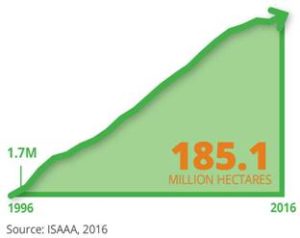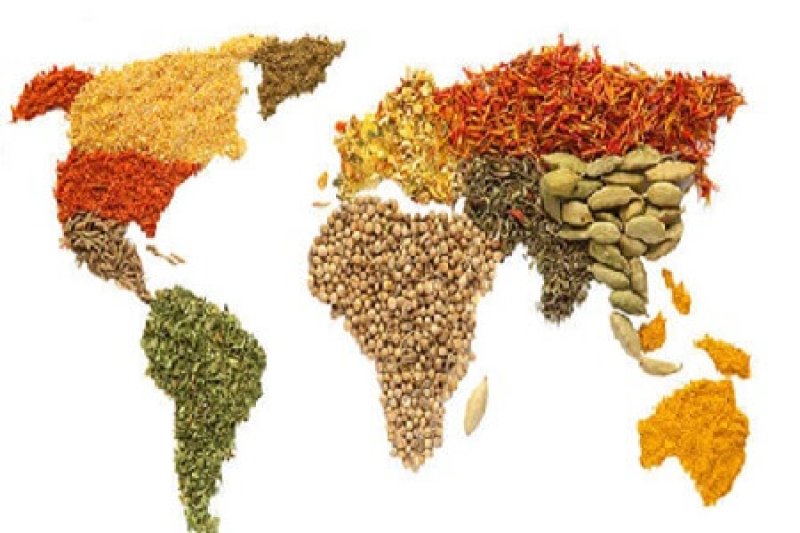Plantings of genetically modified (GMO) crops rebounded in 2016 from a decline the prior year, led by increased sowings in Brazil and the United States, according to an annual report released on Wednesday [May 3, 2017].
Biotech crops were planted on a record 185.1 million hectares (457.4 million acres) last year, up 3 percent from the 179.7 hectares (444.0 million acres) planted a year earlier, said the International Service for the Acquisition of Agri-Biotech Applications (ISAAA), the group that released the data.
 …
…
GMO seedings expanded 3 percent in the United States, the largest producer of biotech crops, and 11 percent in Brazil, the No. 2 market, ISAAA said. The two countries represented 66 percent of total GMO crop seedings globally.
Plantings declined by 3 percent in Argentina, largely due to reduced soybean seedings as farmers shifted land to corn and sunflower cultivation, the group said.
Low cotton prices and high stocks triggered a 24 percent drop in biotech seedings in China, where some biotech corn and soybean varieties are approved for import but not for cultivation.
[Read the full ISAAA report here.]
The GLP aggregated and excerpted this blog/article to reflect the diversity of news, opinion, and analysis. Read full, original post: Global GMO crop area up 3 percent in 2016 after prior-year dip: study
For more background on the Genetic Literacy Project, read GLP on Wikipedia































